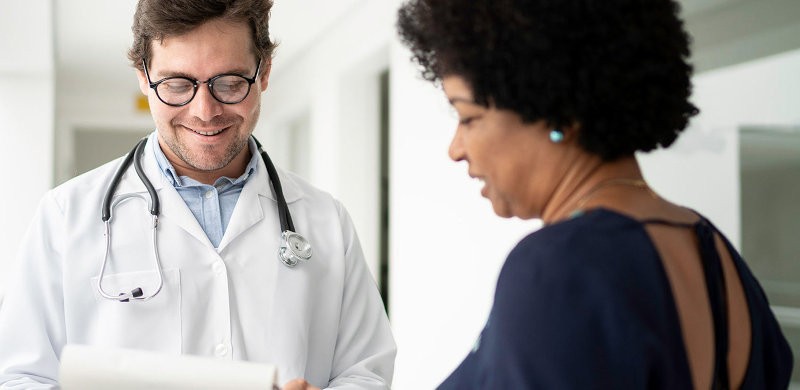
By 2030, more than half of all Americans will be clinically obese. How we can drive change to reverse this trend?
Kevin Grove, Scientific VP Global Obesity and Liver Disease Research at the Novo Nordisk Seattle* Research Center oversees discovery efforts for next-generation therapeutics for people living with obesity and liver disease. His team aims to improve treatment options and access by creating an interface between biology, behavior and technology. Here’s his perspective:
I’m what some may call an accidental scientist attending college originally to become a veterinarian. My career started washing beakers in a lab to pay for vet school, and eventually evolved into a passion for research. Fast forward and I earned a Ph.D. in Neuroscience and set out to discover how the brain controls some of our basic hemostatic responses and how cognitive science influences obesity. As a global epidemic in obesity began to take shape, these research interests evolved into a curiosity to answer commonly asked questions surrounding this ailment. How does it progress? How does pregnancy, health and nutrition impact the developing brain to predispose people to having it? How does a person’s socio-economic status impact disease risk?
As an individual who struggles with weight myself, I recognize obesity has far-reaching health consequences. Yet there is a persistent and harmful stigma toward individuals living with this that places the blame solely on lifestyle choices.
Suggestions to manage obesity place a burden on a person, such as: Eat less, exercise more, make better decisions, read this pamphlet on weight loss, etc. Among our general population and across the health-care profession, there is also a common lack of understanding around the science that influences obesity.
Today it’s common for obesity treatment to be initiated only after serious complications develop. Since joining Novo Nordisk seven years ago, I’ve worked alongside expert scientists and leading academic groups to better understand its progression as a disease and develop pharmacological tools to help treat it. And, more recently we have initiated programs and collaborations to identify strategies and tools to intervene earlier in the disease and even identify risk signatures prior to the development of any disease complications. Our team’s overarching goal is to engage preventative health strategies.

Through our research, we hope people better understand that obesity is caused by underlying genetic and physiologic factors and that it’s not going to be solved by telling people to simply exert more willpower.
Too many people are fearful, ashamed and skeptical about seeking medical help. Too many walks out of their doctor’s office without having the right conversation. Too many healthcare providers lack the right tools and resources to provide the best care. We want to change that.
Our team’s goal in Seattle* is to push the boundaries of science to discover treatment and deliver technologies that will help the patients of the future. We know that to do this successfully, we must go beyond the biology of the disease and gain an understanding of real-world factors and barriers that lead to the onset of obesity.

I want to support those on the frontlines of care to have a deeper understanding of each of their patients and provide tools to help their patients achieve their health goals. I want healthcare providers to feel encouraged and confident to have the right conversations with their patients and to fully engage them during their health journey where-ever they may be.
Through engaging patients earlier, developing more holistic treatment and assessment and acknowledging the science that influences the disease - we are making progress. But more still needs to be done. As a scientist and innovator working every day to shift this paradigm, I want people (patients and healthcare providers) to know there are solutions on the horizon and our team is setting out to uncover them.
*This page contains historical information about our Seattle office, which has been closed. For current locations, please visit “Who we are".
